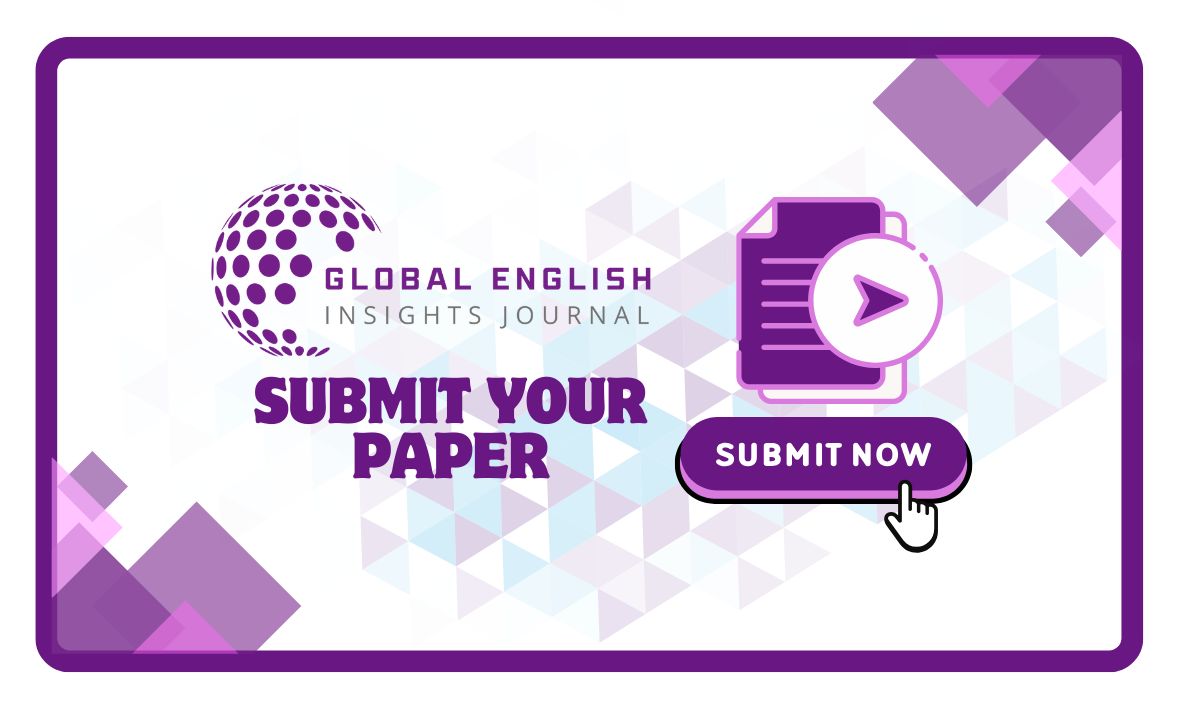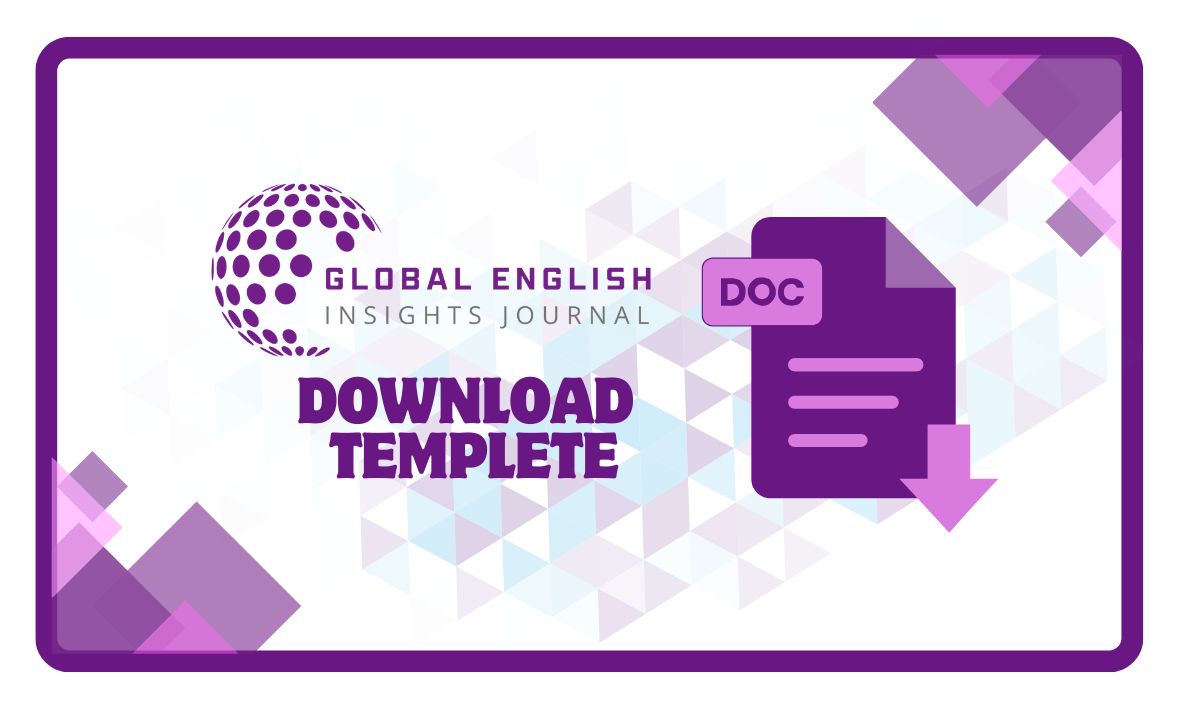Pre-Service English Teachers’ Voice on Virtual Teaching Practice: Shifting from Face-to-Face Teaching into Virtual Teaching
DOI:
https://doi.org/10.61220/glens.v1i1.2023a2Keywords:
Microteaching, Pre-Service English Teachers, Virtual Teaching PracticeAbstract
Pre-service English teachers face various challenges that can significantly impact their competencies and roles, particularly in dealing with students and fellow teachers. The COVID-19 pandemic has added an extra layer of complexity by necessitating the transition from traditional face-to-face learning to online education. This shift is evident in the case of the microteaching course, which originally took place in a physical classroom but was abruptly moved to an online format. This study aims to examine the experiences of pre-service English teachers in virtual teaching practice and how they navigate the challenges associated with professional development during the microteaching course. A total of 31 pre-service English teachers participated in this research, engaging in virtual teaching practice. Data was collected through in-depth interviews, questionnaires, and reflective journals. The findings indicate that pre-service English teachers acknowledge the ineffectiveness of virtual microteaching, citing difficulties in managing and accessing teaching processes as well as the challenges of creating suitable teaching materials. As a result, future pedagogical practices should focus on enhancing the preparation and design of teaching and learning materials to better support the professional development of pre-service English teachers. This will ultimately contribute to their growth as educators during their teaching internships.
References
Altuk, Y. G., Kaya, V. H., & Bahceci, D. (2012). A Study on Developing “Microteaching Scale” for Student Teachers. Procedia - Social and Behavioral Sciences, 46, 2964–2969. https://doi.org/10.1016/j.sbspro.2012.05.598
Arsal, Z. (2015). The effects of microteaching on the critical thinking dispositions of pre-service teachers. Australian Journal of Teacher Education (Online), 40(3), 140–153. https://search.informit.org/doi/10.3316/informit.072579553466420
Bilen, K. (2015). Effect of Micro Teaching Technique on Teacher Candidates’ Beliefs regarding Mathematics Teaching. Procedia - Social and Behavioral Sciences, 174, 609–616. https://doi.org/10.1016/j.sbspro.2015.01.590
Creswell, J. W. (2012). Educational Research Planning, Conducting, and Evaluating Quantitative and Qualitative Research (fourth). University of Nebraska–Lincoln.
Dhawan, S. (2020). Online Learning: A Panacea in the Time of COVID-19 Crisis. Journal of Educational Technology Systems, 49, 5–22. https://doi.org/10.1177/0047239520934018
Egielewa, P., Idogho, P. O., Iyalomhe, F. O., & Cirella, G. T. (2022). COVID-19 and digitized education: Analysis of online learning in Nigerian higher education. E-Learning and Digital Media, 19(1), 19–35. https://doi.org/10.1177/20427530211022808
Elias, S. K. (2018). Pre-Service Teachers’ Approaches to the Effectiveness of Micro-Teaching in Teaching Practice Programs. Open Journal of Social Sciences, 06(05), 205–224. https://doi.org/10.4236/jss.2018.65016
Isma, A., Abdullah, A., & Baharuddin, A. F. (2022). Non-English Language Students’ Perceptions in Learning English through Online Quizizz Application. International Seminar on Language, Education, and Culture (ISoLEC), Vol. 6, No. 1, pp. 1–12. Universitas Negeri Malang.
Isma, A., Hermansyah, S., Ramadhani, Y. R., Lestari, I. W., Evenddy, S. S., Talenta, P. I., Sastri, L., Rasmin, L. O., Febrianto, A. R., & Pavita, M. D. A. (2023). Teaching English to 21st Century Learners (1st ed.). Medan: Yayasan Kita Menulis.
Isma, A., Rasmin, L. O., Hutauruk, T. L., Lestari, I. W., Yuzar, E., Evenddy, S. S., Hamer, W., Wandira, B., Achmad, S., & Rahman, F. (2023). ESP Pedagogy: Designing Effective English for Specific Purposes Courses (1st ed.). Medan: Yayasan Kita Menulis.
Iswantir, M., & Sesmiarni, Z. (2021). The Evaluation of Online Learning in Micro Teaching Course in Tarbiyah and Teacher Training Faculty IAIN Bukittinggi The Evaluation of Online Learning in Micro Teaching Course in Tarbiyah and Teacher Training Faculty IAIN Bukittinggi.
Kusmawan, U. (2017). Online microteaching: A multifaceted approach to teacher professional development. Journal of Interactive Online Learning, 15(1), 42–56.
Lestari, I. W., & Fatoni, M. (2022). The Show must go on: How Students’ Perception on Online Learning in Bojonegoro. Eduvelop, 5(2), 92–101. https://doi.org/10.31605/eduvelop.v5i2.1460
Lestari, I. W., Zumrudiana, A., Fatoni, M., Nahdlatul, U., & Sunan, U. (2022). Pre-service English teachers’ perceptions on the integration of mobile assisted language learning (MALL) during virtual teaching internship. Elite Journal: International Journal of Education, Language, and Literature, 2(2), 79–86.
Majoni, C. (2017). Assessing the Effectiveness of Microteaching During Teacher Preparation. European Journal of Research and Reflection in Educational Sciences, 5(2), 31–36. www.idpublications.org
Nassaji, H. (2015). Qualitative and descriptive research: Data type versus data analysis. Language Teaching Research, 19(2), 129–132. https://doi.org/10.1177/1362168815572747
O’Connor, E. A. (2010). The Effect on Learning, Communication, and Assessment When Student-Created Youtubes of Microteaching Were Used in an Online Teacher-Education Course. Journal of Educational Technology Systems, 39(2), 135–154. https://doi.org/10.2190/ET.39.2.d
Orchard, J., & Winch, C. (2015). What training do teachers need?: Why theory is necessary to good teaching. Impact, 2015(22), 1–43. https://doi.org/https://doi.org/10.1111/2048-416X.2015.12002.x
Özonur, M., & Kamışlı, H. (2019). Evaluation of pre-service teachers’ views related to microteaching practice. Universal Journal of Educational Research, 7(5), 1226–1233. https://doi.org/10.13189/ujer.2019.070508
Sarimanah, E., Efendi, R., & Dewi, F. I. (2021). The Development of Online-Based Microteaching Learning in Improving the Teaching Basic Skills in the Covid Era 19. Proceedings of the 5th Asian Education Symposium 2020 (AES 2020), 336–338. https://doi.org/10.2991/assehr.k.210715.070
Downloads
Published
Issue
Section
License
Copyright (c) 2023 Fitria Handayani, Iin Widya Lestari, Aprilia Susanti (Author)

This work is licensed under a Creative Commons Attribution-ShareAlike 4.0 International License.










 Email :
Email : 
